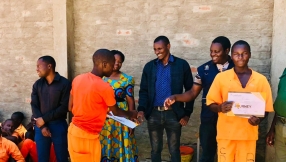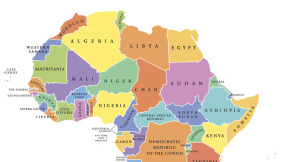Theresa May has refused to interfere in the Church of England's debate over same-sex marriage.
The Prime Minister, who is a regular churchgoer, dodged a question on whether she thought the established church should allow gay couples to wed in its buildings.

'As you know, the Church of England continues to debate these issues, and I respect the deeply-held views that many of its members have,' she said in a Q&A session with PinkNews.
'As the established Church, it is in a different legal position from other churches or faith groups, so the law equalising marriage had to recognise that.
'I strongly support equal marriage, and I know that these debates will continue, but it will have to be for the Church as a whole to decide if it wants to make a change to its Canon law.'
It comes after several MPs questioned the CofE's parliamentary representative – the second Church estates commissioner, on the issue.
Labour's Ben Bradshaw and Chris Bryant and Tory MP Robert Jenrick branded the Church's stance on sexuality 'untenable', 'unfair' and 'hard to justify' and piled on pressure for a change.
But May refused to join their condemnation.
Asked whether, as an Anglican and the daughter of a vicar, she found it difficult fighting against the Church as part of the Tory team to push through the same-sex marriage legisalation, May said: 'No, it wasn't.
'We were very clear when we introduced the equal marriage legislation that it was not about forcing the Church of England to conduct marriage ceremonies, but removing a legal injustice.'
Later asked about gay cure therapies, advocated by some conservative Christians, May responded by saying they were 'unethical, damaging and are not supported by any evidence'.
She said: 'Being gay or trans is not an illness, and shouldn't be treated as such – young people should be protected from attempts to change who they are. We're looking carefully at the extent of the problem, and the experience of other countries that have introduced bans, to ensure we get the approach to this right.'













